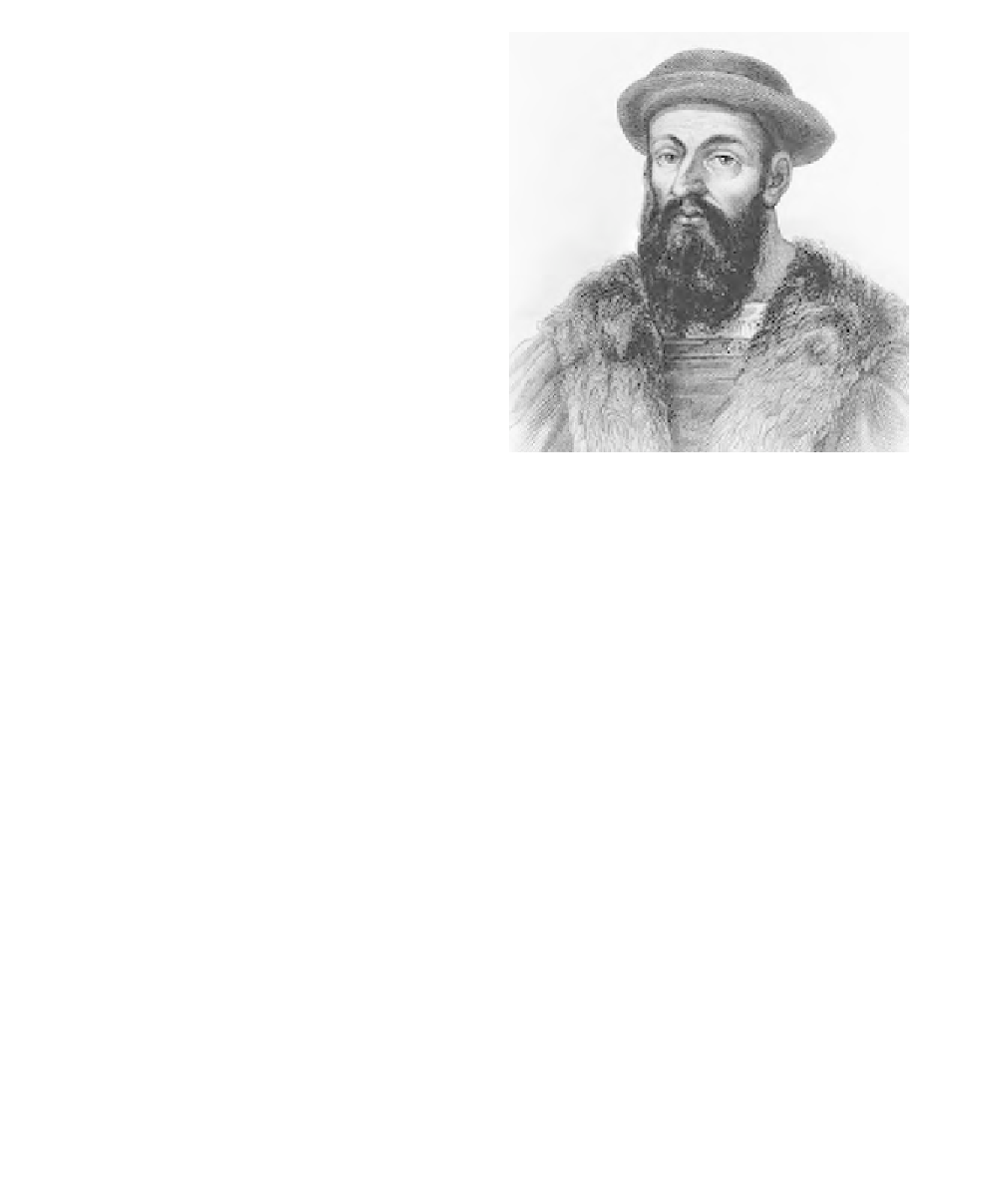Travel Reference
In-Depth Information
the suppliers of some of the elegant fur-
nishings of the palace hesitantly warned
the king that his requirements would cost a
huge amount of money, he promptly
responded by sending them twice the
amount they had specified. Clearly the scale
upon which John the Magnanimous pur-
sued this enterprise was designed to glorify
not only God but himself.
Magellan, Ferdinand (Fernão
de Magalhães, Fernando de
Magallanes)
(1480-1521)
Portuguese navigator in the service of
Spain
A Portuguese nobleman who had served
for more than a decade in his country's East
Indian domains, Magellan returned to L
IS
-
BON
after a falling-out with the viceroy,
A
FONSO
DE
A
LBUQUERQUE
. On the basis of
contacts with Portuguese traders and
administrators in the S
PICE
I
SLANDS
he
developed a plan for reaching those distant
outposts by crossing the newly discovered
Pacific. When M
ANUEL
I rejected his ideas
(1517), Magellan went to Spain where he
obtained an audience with C
HARLES
I and
secured a commission to lead a Spanish
fleet on an expedition to expand the empire
into Asia. Departing with five ships and
more than 250 men, he sailed down the
east coast of South America seeking a water
route through the continent. Some accounts
suggest that he had prior knowledge of such
a route, which would explain the strenuous
Portuguese efforts to prevent his departure.
He succeeded in reaching the Pacific
through the tortuous passage subsequently
known as the Strait of Magellan, near the
southern tip of South America. This ocean
was previously unexplored. Portuguese
Ferdinand Magellan, 1581
(Library of Congress)
charts that he had obtained were based on
speculation and proved totally useless.
Occupying a third of the globe, large enough
to encompass all of the earth's landmasses
and 16 times the size of the Atlantic, the
Pacific Ocean represented a challenge far
greater than that confronted by any earlier
explorer, including C
HRISTOPHER
C
OLUMBUS
.
Magellan had already experienced strained
relations with his Spanish officers, several of
whom he had executed when they threat-
ened mutiny, and one of his ships had
deserted him and sailed home while still on
the Atlantic coast. His harsh discipline and
taciturn authoritarianism continued to alien-
ate his men but served to hold them together
throughout a voyage across the most empty
area of this ocean, during which they spent
four months without sight of land and
reduced to near-starvation. Conditions were
somewhat relieved when the expedition
reached what is now the M
ARIANA
I
SLANDS
,

Search WWH ::

Custom Search